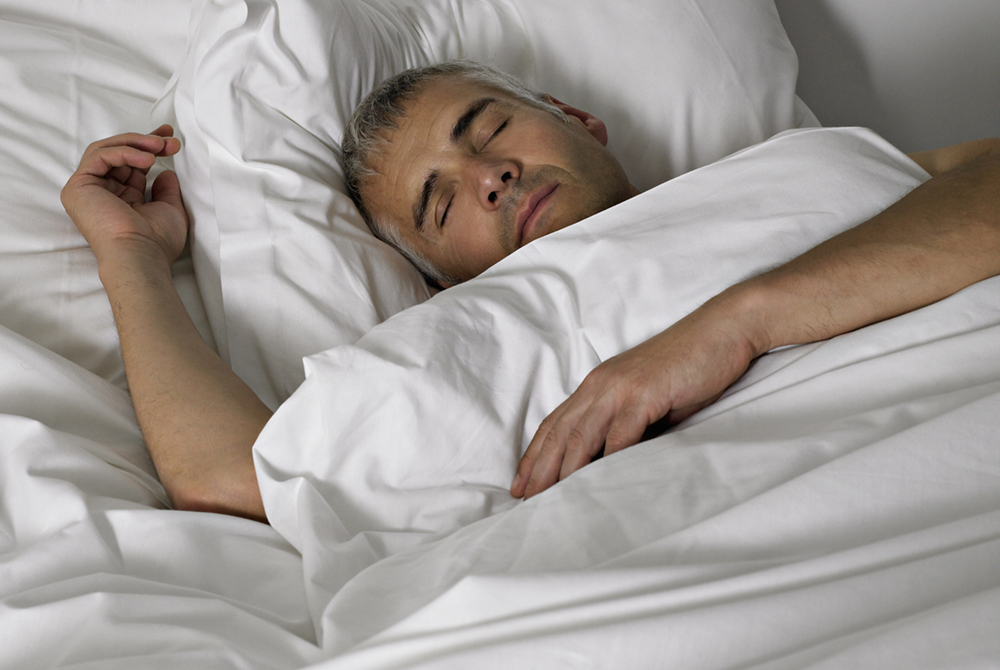
Don’t worry, there’s help on hand at Flinders
An epidemic is raging in Australia, and it’s not the one you might think. More than half of all adult Australians suffer from at least one chronic sleep symptom that is affecting their ability to live a healthy, happy life… and that’s just the tip of the iceberg.
A recent Australian Sleep Health Foundation study found more than 60% of Australians regularly experience at least one sleep issue (like trouble falling asleep) several times a week, and 14.8% have symptoms which could result in a diagnosis of clinical insomnia.
Clinical or chronic insomnia is characterised by difficult falling asleep or staying asleep, or waking too early on a regular basis, despite having adequate opportunity to sleep, as well as daytime impairments resulting from sleep problems.
Emeritus Professor Leon Lack leads Flinders University’s Insomnia Treatment Program from the $4 million revamped Adelaide Institute for Sleep Health (AISH) at Bedford Park, one of Australia’s premier sleep research laboratories. He has spent his career working hard to reduce the debilitating effects of insomnia and other sleep disorders.
‘More than half of us suffer from loss of daytime function due to poor sleep,’ says Professor Lack. ‘At AISH we offer clinical consultations to treat insomnia and = related conditions via phone and other remote options, as well as the option of face-to-face consultations if needed.’
At the Institute’s high-tech, six-bed research lab a wide range of clinical studies are conducted to find better solutions for sleep health.
With over 50 staff, the centre brings together national sleep experts including its Director Professor Danny Eckert and Medical Director Professor Robert Adams, as well as esteemed sleep scientists including Professors Doug McEvoy and Peter Catcheside, Dr Nicole Lovato (BPsych(Hons) ’08, PhD(Psych) ’12), Dr Gorica Micic (BBehavSc(Hons) ’12, PhD(Psych) ’16, MPsych(Clin) ’19), and Associate Professors Andrew Vakulin, Sutapa Mukherjee and Ching Li Chai-Coetzer.
‘Our toolkit for different insomnia treatments includes various forms of cognitive behaviour therapy in combination with light therapy and other technologies. We aim to find solutions for even the most complex cases,’ says Professor Lack, who helped invent Re-timer light glasses and a small wearable consumer device to adjust individual circadian rhythms for better sleep.
‘Through our clinical treatment services, some find rapid relief from their seemingly endless sleep problems,’ he adds. After many years of having trouble sleeping, Anita Helbig felt like she was living on a knife edge. Suffering from constant headaches and feeling tired all day, she found it difficult to function.
Sleeping pills and day naps only increased the symptoms and she developed insomnia. Anita’s doctor recommended the Adelaide Institute for Sleep Health and, through a sleep study, she was diagnosed with the breathing disrupted sleep condition sleep apnoea.
‘I was then given support to get my sleeping patterns and my life back to normal,’ says Anita. ‘I now wake up feeling refreshed and have an inner peace.’
Anita believes the sleep study and resulting support from AISH have added extra years to her life, and she is keen to see others benefit from the Institute’s research.
AISH Director Professor Danny Eckert is making inroads into targeted drug and breathing therapies for sleep disorders such as obstructive sleep apnoea.
He says, ‘Sleep disorders, as well as voluntary and society-driven sleep pressures have a major negative impact on health, productivity and safety – yet very little is done in the primary health care system to address these issues.’
As a result, Flinders University is leading an Australian Government NHMRC Centre of Research Excellence in Clinical Sleep Services project to expand GP and primary care treatment for the sleep epidemic across the nation.
‘The over-reliance on specialist services and hypnotic drug therapy, poor resourcing for primary care professionals in sleep management, and expensive testing for sleep apnoea means these disorders often go untreated or mistreated,’ explains Professor Robert Adams, AISH Medical Director and member of the national Sleep Health Foundation Board.
‘Sleep is such a vital aspect of good health and happiness, but relatively few Australians speak to their doctor about their sleep.
‘It’s important to know that, through Adelaide Institute for Sleep Health, there’s help on hand.’
Help is on hand to get a good night’s sleep
Flinders University’s Adelaide Institute for Sleep Health has a range of clinical services (some rebates available through Medicare and private health insurance) and free-of-charge research projects to help get your sleep on track to support your health and happiness. sleephealthtreatment@flinders.edu.au flinders.edu.au/aish

